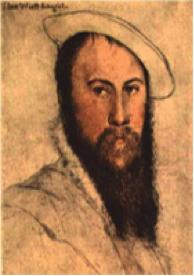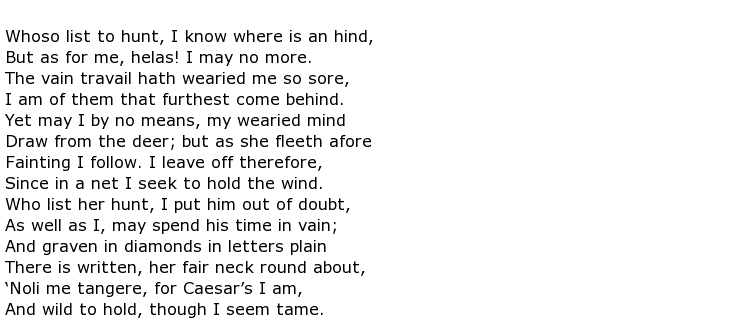 Here is a man, born in the year 1503, into one of the most turbulent times in English history, at Allington Castle in Kent. His father, Henry, was able to live in such a grand location due to his position as a Privy Councillor to King Henry VII and he continued in this role when Henry VIII succeeded to the throne. The young Thomas soon followed his father at court, being appointed “Sewer Extraordinary” at the age of 12 and began his education this same year at St John’s College, Cambridge.
Here is a man, born in the year 1503, into one of the most turbulent times in English history, at Allington Castle in Kent. His father, Henry, was able to live in such a grand location due to his position as a Privy Councillor to King Henry VII and he continued in this role when Henry VIII succeeded to the throne. The young Thomas soon followed his father at court, being appointed “Sewer Extraordinary” at the age of 12 and began his education this same year at St John’s College, Cambridge.
It was here that he began writing poetry and this interest developed as his diplomatic career progressed. He was fortunate to be able to travel extensively in the service of the King and he was influenced by both Italian and French styles of writing. It has been said that he was the first English poet to incorporate both the Italian sonnet and the French rondeau forms into his writing. Indeed he has been credited with introducing the sonnet into English poetry.
As his status as a diplomat grew he was appointed ambassador to both France and Italy along with other high ranking positions. This did not prevent him falling foul of the law on occasions though, and he had a number of spells in prison. Perhaps the most dangerous time for him was when the friends and alleged conspirators associated with Queen Anne Boleyn were all interrogated – often tortured – and imprisoned either for further questioning or awaiting further punishment. Wyatt was accused of “having relations with the Queen” along with the likes of Sir Francis Weston, William Brereton, Mark Smeaton and Sir Henry Norris.
The story goes that Wyatt and Anne had actually been lovers but this was before her relationship with the King began. Wyatt spent an unhappy and anxious month in the Tower of London but was released with his head still firmly attached to his shoulders! This only happened though following the Queen’s own beheading and, considering the fate of many others, he could certainly consider himself lucky.
One of Wyatt’s most famous poems is supposedly about his time spent with Anne Boleyn, though there will have been no incriminating lines in there that could have been used by his accusers. He almost certainly deeply regretted that their relationship came to an end. Here is an extract from the sonnet Whoso List to Hunt:

The hunting of the hind, mentioned here, suggests that Anne was “the hind” and Wyatt was regretting that he could follow this pleasant pursuit no more, as indicated in the line 
A year after the Queen’s execution Wyatt was back in favour at court and was knighted and Sir Thomas then spent two years as ambassador at the court of King Charles V of Spain. The turbulence in England continued unabated though and his chief ally at Henry’s Court – Sir Thomas Cromwell – was executed in 1540. This left Wyatt dangerously exposed to plotters and enemies and he was soon accused of treason. Finding himself once more in the Tower there followed yet more anxious times and this, very likely, contributed to his falling gravely ill.
Sir Thomas Wyatt contracted a fever and died in 1542

